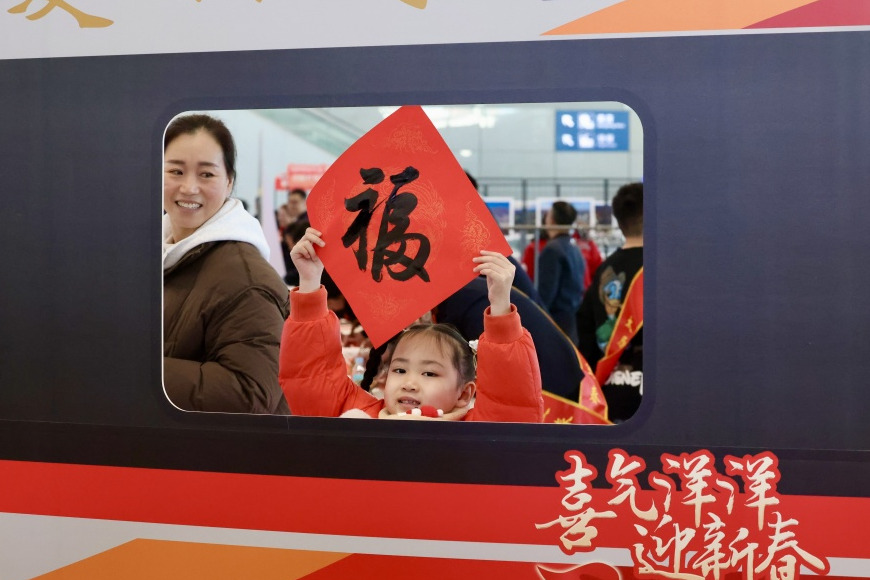Beijing-Tianjin-Hebei coordination nets results
Regional integration sees strong growth, development opportunities


Shared public service
Railways in the Beijing-Tianjin-Hebei region now extend for more than 11,000 km, up more than 30 percent since 2013, while expressways run for nearly 11,000 km, more than 40 percent farther than in 2013, according to official data.
The coordinated development in the region has grown into a new driving force for China's development.
"The regional economic output has reached 10.4 trillion yuan, 1.9 times that of 2013, indicating a continuous enhancement of the overall regional strength," said Liu Bozheng from the Beijing office overseeing the integration of the Beijing-Tianjin-Hebei region.
Residents in the three places have also witnessed broader shared public services such as in medical treatment and education, with over 40,000 senior residents from Beijing and Tianjin choosing to live in community nursing homes in Hebei, according to the Beijing Bureau of Statistics.
Over the past decade, more than 200 primary and secondary schools in Beijing and Tianjin have established cooperative education ties with more than 200 schools in Hebei, and 15 universities in Beijing will establish new campuses in the Xiong'an New Area, according to the Hebei government.
"The entry of these 15 universities will bring high-quality talent and technological resources to Xiong'an, and even to the higher education sector of Hebei province," Wang Huan'an, deputy director of the development planning office at Capital Normal University, told an industrial forum in Beijing.
In April 2017, China announced the plan to establish Xiong'an New Area, located about 100 km from Beijing. It aims to become a significant part of the world-class Beijing-Tianjin-Hebei city cluster and plans to take over Beijing's non-capital functions and provide a Chinese solution to "big city malaise", such as overcrowding, pollution and traffic congestion.
Du Juan contributed to this story.
























